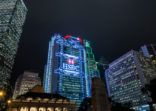Cecilia Chan, HSBC Asset Management
The asset manager believes that the global economy is transitioning from a “restoration phase” to an “expansion phase” of the cycle.
Output has fully recovered in the US, China and across industrial Asia, and corporate profits have rebounded sharply and earnings expectations for 2022 are ahead of pre-Covid forecasts. Meanwhile, with inflation pressures building, the policy debate has moved on to the timetable for quantitative easing tapering and interest rate rises, Asia investment chiefs told a media briefing on Monday.
In this “mission transition”, “expected returns are ‘lower for longer’ in many liquid asset classes and a higher inflation regime undermines the diversification properties of global government bonds,” said Cecilia Chan, chief investment officer, Asia Pacific, HSBC AM.
“We are thus focused on titling portfolios towards less expensive and potentially more reliable diversifiers within Asia fixed income and alternatives, such as renminbi bonds and infrastructure debt. On the equities front, we continue to see relative value in Asian and Chinese equities,” she said.
Value tilt
In this environment, “exposure to value stocks still makes sense”, with key opportunities to be found in 5G, life insurance and digitalisation, according to Chan.
Global stock markets have delivered double-digit returns, but those returns have been uneven, as investors rotated towards value and cyclical names. The backdrop of rising bond yields and the possibility of asset price overshooting also mean HSBC AM has a preference of value over growth.
“As global central banks continue to expand balance sheets and maintain lower-for-even-longer interest rates, this environment should remain favourable for an Asian high dividend strategy. Overall, we believe Asian equities still offer attractive risk-adjusted returns due to good growth and liquidity support,” said Alexander Davey, global capability head for active & quantitative equity, HSBC AM.
HSBC AM forecasts earnings growth to rebound strongly in 2021 from minus -4% last year.
Meanwhile, the pandemic has accelerated structural and behavioural shifts towards the digital economy, with several information technology segments likely to benefit from the adoption of 5G.
Davey believes hardware companies in Taiwan and Korea remain attractively valued, and are key beneficiaries of faster technology adoption. In addition, given the current low Asian insurance penetration, coupled with people’s increasing awareness of health triggered by Covid-19, he thinks that insurance markets in countries such as China are providing market share gain opportunities.
In terms of sector performance, HSBC AM favours key investment themes in 5G, life insurance and digitalisation.
China bonds stand out
Fixed income asset classes globally generally underperformed equities in the first half of this year, and even after interest rate volatility declined in the second quarter and bond yields stabilised, fixed income returns have lagged overall. The main exception has been the China bond market.
“We believe that amid a higher inflation regime and the current subdued level of expected returns for liquid asset classes, there is a case for investors to look to Asian bonds as a substitute for global bonds. Renminbi onshore bonds offer higher yields and exhibit lower correlations to equity markets,” said Elizabeth Allen, head of Asian fixed income, HSBC AM.
Renminbi onshore bonds continue to look attractive, according to Allen, with ten-year government bonds currently trading at a substantial yield premium versus other comparable global bonds. Likewise, she believes that Asia credit benefits from higher spreads and lower duration versus other global credit markets while still enjoying low default rates,” she said.
“In a nutshell, the core message for investors in an expansion phase is to be prepared for the coming cyclical transition, a lower phase of investment returns, and a policy regime shift which heralds mission economy risks and requires a strategic repositioning away from global bonds,” said Chan.

















